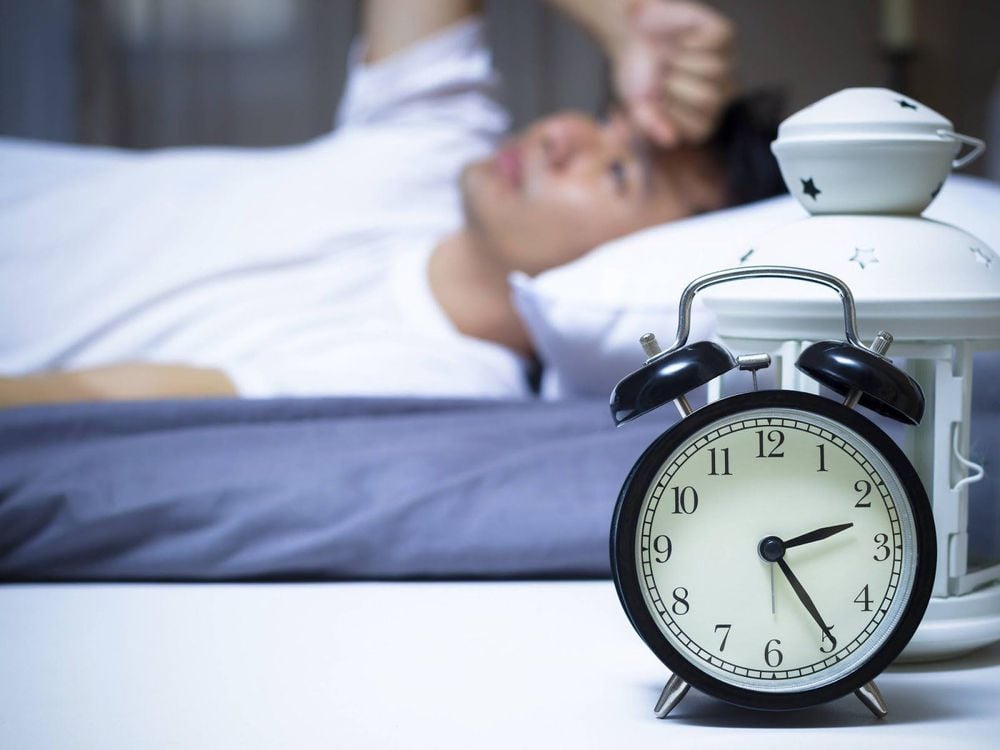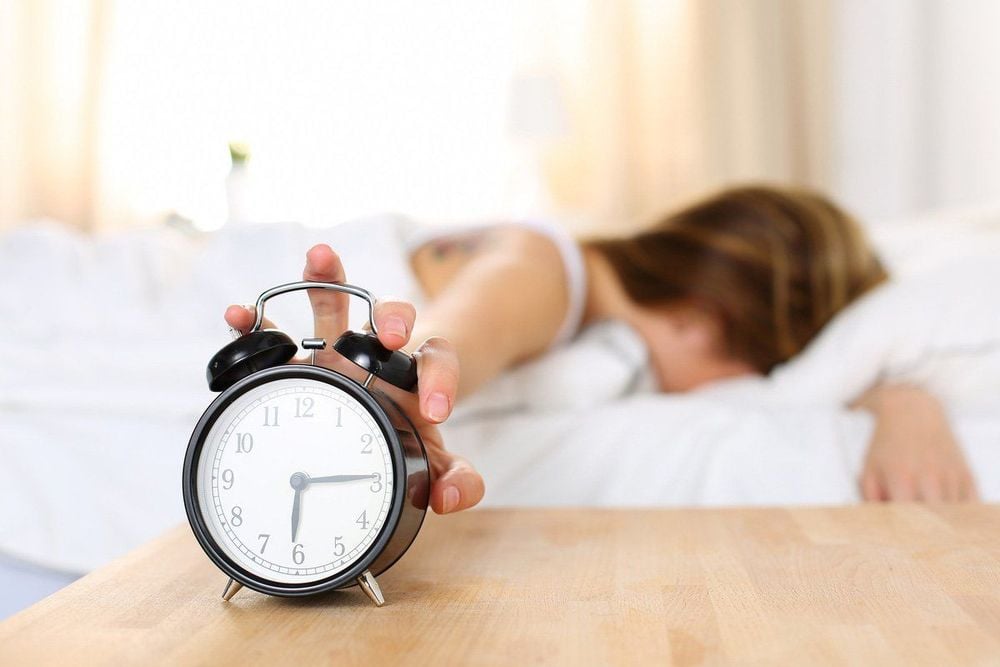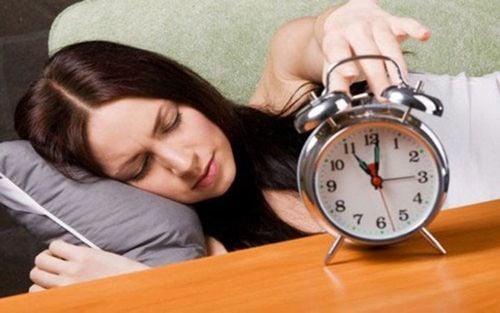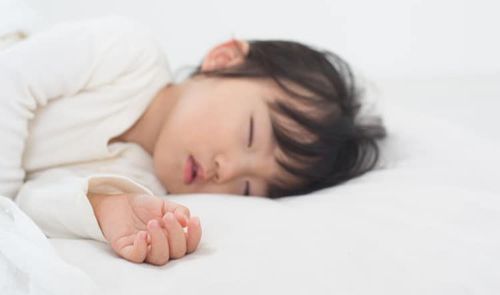This is an automatically translated article.
Sleep disorders affect the duration and quality of sleep. The cause of trouble sleeping, insomnia or interrupted sleep stems from bad habits, diseases or certain medications. Not getting enough sleep is a serious problem that threatens your health and safety.
1. Overview of sleep disorders
Sleep cycles are classified into 2 types:
REM (rapid eye movement): 25% of sleep, usually in the morning. This is the time you have dreams. NREM: The remaining time of sleep, further divided into 4 sub-stages, from shallow (1) to deep (4). A sleep disorder is a disturbance of the normal cycle above and prevents you from having a good night's rest. Symptoms of a sleep disorder often include:
Feeling very sleepy during the day Difficulty sleeping or not sleeping well Snoring Frequently stopping breathing during sleep Feeling uncomfortable in the legs and always wanting to move, movement (restless leg syndrome)
Lack of sleep can take a toll on almost every aspect of life, including:
Traffic accidents Problems in social relationships Poor work performance Injuries or work accidents Memory loss Mental instability. Recent studies also show that sleep disturbances can contribute to heart disease, obesity, and diabetes.

Thiếu ngủ có thể gây thiệt hại đến hầu hết mọi mặt trong cuộc sống
2. How much sleep is enough?
General guidelines for the amount of sleep needed each day by age are as follows:
Infants: 12 - 15 hours Toddlers (1 - 3 years): 11 - 14 hours Preschoolers (3 years old) - 5 years old): 10 - 13 hours Elementary school students (6 - 13 years old): 9 - 11 hours Teens (14 - 17 years old): 8 - 10 hours Adults: 7 - 8 hours However, some Adults can still lead a normal life with only 5 hours of sleep a day, while others need up to 10 hours of sleep a day to be awake.
3. Manifestations and causes of insomnia
It is normal for you to toss and turn sometimes, staying awake at bedtime is normal. But if this situation persists from night to night, you have insomnia. Symptoms include:
Lying awake in bed for hours, unable to fall asleep Waking up too early and not being able to continue to get more sleep Waking up repeatedly, many times a night Insomnia is the most common form of sleep disturbance in the United States, affecting one-third of adults at various times in life. Causes of insomnia include:
3.1. Bad habits before sleeping
In many cases, insomnia is related to unhealthy habits before going to bed, such as:
Drinking coffee in the afternoon or evening Smoking or eating too much at night Sleeping time each night is not trying Plan to watch TV, computer or phone before going to bed
3.2. Mental health
Mental health problems such as depression , anxiety and trauma... can also cause insomnia . Not only that, some medications prescribed to treat these psychological disorders also lead to sleep problems. If you suspect that the medications you are taking are the cause of your insomnia, talk to your doctor about changing your treatment.
3.3. Related medical condition
Difficulty sleeping is often associated with health problems such as:
Arthritis Heartburn Chronic pain Asthma Chronic obstructive pulmonary disease (COPD) Heart failure Thyroid problems Neurological disorders, such as stroke, Alzheimer's or Parkinson's
3.4. Other causes
Pregnancy: This is another reason many women experience insomnia, especially during the first and third trimesters. Perimenopause: Menopause causing uncomfortable hot flashes is also a cause of insomnia. Age: Both men and women tend to have sleep-related problems after age 65. Work: People who work rotating day and night shifts, or have to fly frequently will have circadian rhythm disturbances, leading to sleep problems.

Mất ngủ, khó ngủ ảnh hưởng đến chất lượng cuộc sống
4. Other sleep disorders
4.1. Sleep apnea
Syndrome means that your breathing will stop for a few seconds, then start breathing normally again, and this will happen again and again throughout your sleep. A pause in breathing lasting a few seconds triggers a sleep cycle transition, from deep to shallow (shallow).
Sleep apnea can make you feel very sleepy during the day. Although many people don't even know they have it, your sleep partner can tell you about your unusual snoring, snorting, and gasping while you're asleep.
Sleep apnea is most common in overweight men over 65 years of age. In addition, young children with enlarged tonsils can also experience this condition.
4.2. Restless legs syndrome
People with restless legs syndrome always feel:
An urge to move, unable to resist moving their legs Discomfort, tingling or tingling in the legs Like a needle or ants crawling, goose bumps in the legs foot. This condition gets worse at night, making it difficult to get a rest. Patients often wake up with seizures in the middle of the night.
4.3. Narcolepsy
People with narcolepsy will not be able to maintain alertness to work all day without napping, even if they get enough sleep at night. This syndrome makes you unable to control your sleepiness and suddenly fall asleep. Other warning signs include:
Inability to control muscles with strong emotions hallucinating hallucinations while sleeping or just waking up Dreaming during naps Upon awakening, a person with narcolepsy may also feel like the body is moving, floating, unsteady. The cause of these phenomena is that they go into REM sleep too quickly, while at the same time skipping the normal NREM phases.
4.4. Sleep walking
The sleepwalker will get out of bed and wander at night without even realizing it. They only heard people report strange actions while sleeping the night before, but still couldn't remember. Sleepwalking occurs when the sleep cycle moves from a deep to a shallower stage. This condition is most common in children between the ages of 4 and 8, but can occur at any age.
5. Diagnosis of sleep disorders
Go to a medical facility if you think you have a sleep disorder. Your doctor may ask you to keep a sleep diary for 1 - 2 weeks. Specifically:
Time in bed and out of bed each day Length and quality of sleep Total time spent awake and tossing in bed Menus and meal times (especially caffeine and alcohol) Emotions and levels stress List of current and past medications Your doctor will review your habits based on your diary and do a general physical exam. A sleep study, called polysomnography, records your brain activity, eye movements, and breathing while you sleep. This test can reveal 85 different potential causes of sleep disturbances, ranging from nightmares to shift work.

Cần thăm khám để điều trị rối loạn giấc ngủ kịp thời
6. Treatment of sleep disorders
6.1. The principles of treatment
For sleep apnea, a continuous positive airway pressure (CPAP) machine will keep your airways open, allowing you to get a full night's rest. You can also treat narcolepsy and restless legs syndrome with lifestyle changes and prescription medications. Besides using insomnia medication, following good habits before going to bed is also highly effective.
6.2. Psychotherapy
Anxiety makes insomnia worse. Cognitive behavioral therapy (CBT) may be helpful. Experts will teach relaxation and biofeedback to calm the patient's breathing, heart rate, muscles, and mood.
6.3. Do exercise
Physical activity is one of the good habits to do to prepare for bedtime. You will easily fall asleep and fall asleep when your body is tired. However, exercise should only be done in the late afternoon, because excessive sweating a few hours before bed can backfire, keeping you awake all night.
6.4. Diet
Certain foods and drinks can adversely affect sleep. Candles avoid the following 4-6 hours before bed:
Caffeine, including coffee, tea and soda Spicy or indigestion foods Alcohol (will help some people fall asleep, but also keep them awake Get up many times and be tired the next morning) Instead, have an evening snack that is high in easily digestible carbs. You can have a small bowl of cereal with milk or a muffin, but don't eat it within 1 hour of bedtime or past 12 midnight. In addition, warm milk and chamomile tea also increase body temperature and make you sleepy.
6.5. Turn off electronic devices
Many people have the habit of watching movies late at night before sleeping. This hobby will entertain you after a long day, but will also keep your mind awake and unable to sleep. Playing games, watching videos, and surfing the Internet have the same effect. The National Sleep Foundation has recommended that people avoid placing TVs and computers in bedrooms.
You can train your mind and body to know it's time to go to sleep by taking a warm bath, reading a book, or using relaxation techniques, like deep breathing. It's important to go to bed and wake up at the same time every day, even on weekends. If you still have trouble sleeping at night and are tired all day, see your doctor for advice and treatment for a sleep disorder.
To register for examination and treatment at Vinmec International General Hospital, you can contact the nationwide Vinmec Health System Hotline, or register online HERE.
Reference source: webmd.com













